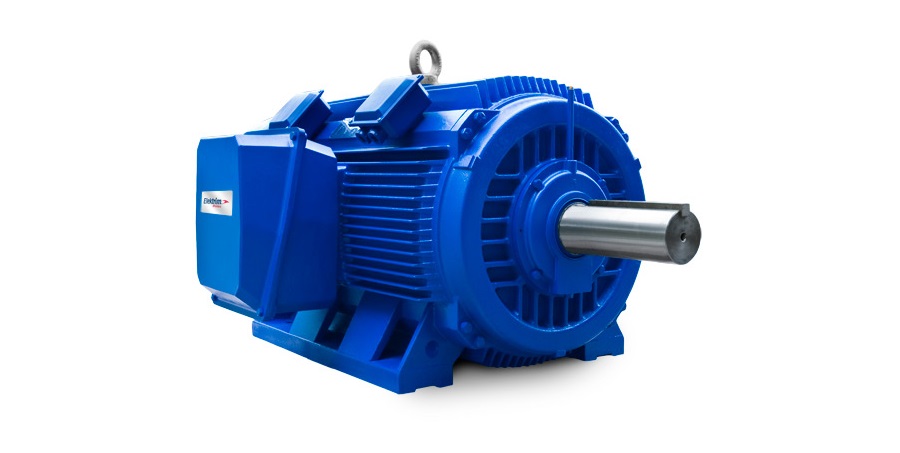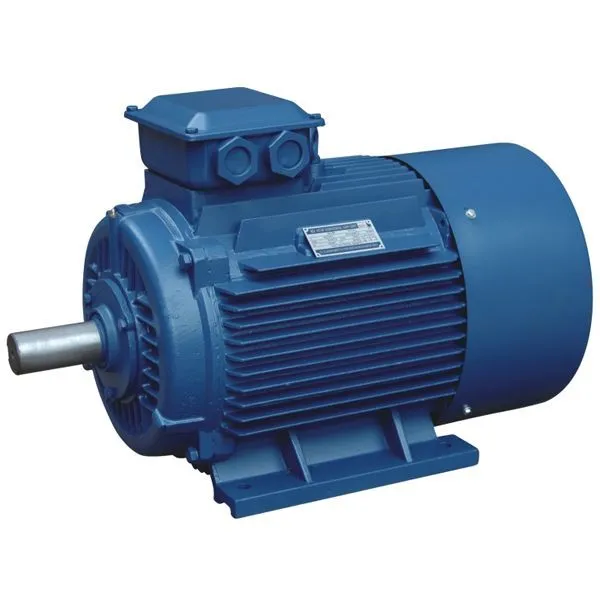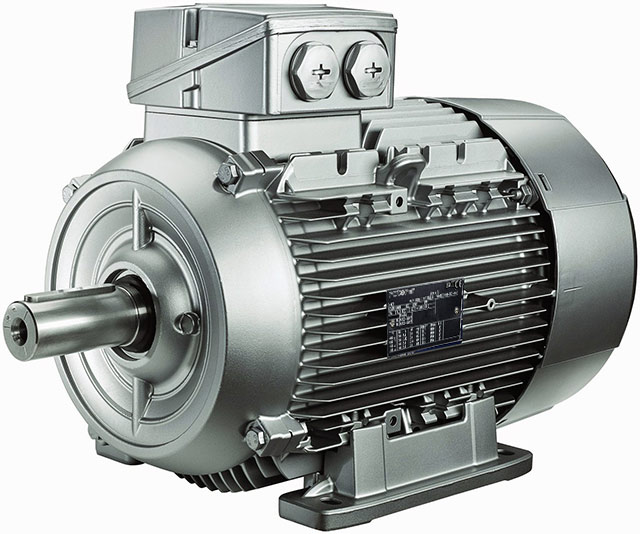Product Description
GEXIN MS Series Aluminum Housing Three-Phase Asynchronous Induction Electrical Motor
Gexin Electromechanical Co.,Ltd. is a company specializing in the production and processing of YC MS,YD, YCT, YEJ, YVF, YBE4, Y. YE2,YE3 .YE4 and other three-phase asynchronous motors. It has a strong R&D team, and the motor produced by the company is brand new, with national standard stator and rotor and all copper. Product 3c certification, strict technology, each processed part has passed the incoming QC, and the manufacturing process inspection. With rich production experience and advanced production equipment, the company has established long-term cooperative relations with many enterprises with strong strength, reasonable price and high-quality service. Business is sincere, and being the first person in business is our aim.
Product Description
Ms Three-phase Electric Motor are made of high-quality materials and conform to IEC standard. Which has good performance with low noise and little vibration. It is safe and reliable in operation, and can be maintained very conveniently.
1.MS Series Aluminum Housing Three Phase Induction Motor adopts the latest design and high quality material and are conform to the IEC standard in function, appearance, output and other requirements.
2.The efficiency of MS motor meets EFF2 standard in E. U., and can reach the EFF1 standard if requested. MS motor has a lot of advantages including high efficiency, energy saving, low noise, little vibration, light weight, small volume, reliable operation, up-to-date appearance, convenient operation and maintenance.
3.MS motor is died cast into mounding shape by aluminum-alloy. The base foot can be removable. Various mounting types are available for MS motor.
4.MS motor is suitable for common working environment and machinery without special requirement, like air-compressor, pump, fan, medical apparatus and instruments, small machines etc.
| Operating Conditions | |
| Ambient temperature | -15ºC≤θ≤40ºC |
| Altitude | Not exceeding 1000m |
| Rated voltage 380V
|
|
| Rated frequency | 50Hz/60Hz |
| Protection class | lP54,IP55 |
| lnsulation Class | Class B/F |
| Cooling method | |
Installation Instructions
Installation Diemsions
Advantage
* 100% Copper wire,100% Power Output;
* Competitive Price;
* 100% test after each process and final test before packing;
* 20Years Manufacture Experience;
* Energy saving;
* Superior Life;
* Quiet Operation;
* Easy maintance;
* Be made of selected quality materals.latest design in entirety;
* OEM Service ;
* CE/ISO Approved;
* 20-30days lead time;
* Main Market: South America, Middle East, Southest Asia, Europe,Africa and so on;
* Have Rich Experience and Strong ability to Develop New Products;
* Have Ability to Design the Products Based on Your Original Samples;
Quality Assurance:
1 year quality warranty and fast after-sales service.
Manufacturing process:
- Stamping of lamination
- Rotor die-casting
- Winding and inserting – both manual and semi-automatically
- Vacuum varnishing
- Machining shaft, housing, end shields, etc…
- Rotor balancing
- Painting – both wet paint and powder coating
- Motor assembly
- Packing
- Inspecting spare parts every processing
- 100% test after each process and final test before packing
Product Parameters
Gexin Electromechanical Co., Ltd., which has 150 employees, an annual output value of $1800w and an area of 26000 square meters.
FAQ
1: Are you a factory or just a trading company?
A1: Manufacturer,and we focus on the development and production of electric motors for more than 20 years.
Q2: Is customized service available?
A2: Of course, OEM & ODM both are available.
Q3: How can I get the quotation?
A3: Leave us message with your purchase requirements and we will reply you within 1 hour on working time. And you may contact us directly by Trade Manager.
Q4:Can I buy 1 as sample?
A4: Yes, of course.
Q5: How about your quality control?
A5: Our professional QC will check the quality during the production and do the quality test before shipment.
Q6: What is your payment term?
A6: 30% T/T in advance, 70% balance when receiving B/L copy Or 100% irrevocable L/C at sight.
Q7: What is your lead time?
A7: About 20-30 days after receiving advance deposit or original L/C.
Q8: What certificates do you have?
A8: We have CE, ISO. And we can apply for specific certificate for different country such as SONCAP for Nigeria, COI for Iran, SASO for Saudi Arabia, etc.
Q9: What warranty do you provide?
A9: One year, during the guarantee period, we will supply freely of the easy damaged parts for the possible problems except for the incorrect operation. After expiration, we supply cost spare parts for alternator maintenance.
/* January 22, 2571 19:08:37 */!function(){function s(e,r){var a,o={};try{e&&e.split(“,”).forEach(function(e,t){e&&(a=e.match(/(.*?):(.*)$/))&&1
| Application: | Industrial, Household Appliances, Power Tools |
|---|---|
| Operating Speed: | High Speed |
| Number of Stator: | Three-Phase |
| Species: | Ms Series Three-Phase |
| Rotor Structure: | Winding Type |
| Casing Protection: | Closed Type |
| Samples: |
US$ 80/Piece
1 Piece(Min.Order) | |
|---|
| Customization: |
Available
|
|
|---|

How do manufacturers ensure the quality and reliability of electric motors?
Manufacturers employ several measures and quality control processes to ensure the quality and reliability of electric motors. These measures span from design and manufacturing stages to testing and inspections. Here’s a detailed explanation of how manufacturers ensure the quality and reliability of electric motors:
- Robust Design and Engineering: Manufacturers invest significant effort in designing electric motors with robust engineering principles. This involves careful selection of materials, precise calculations, and simulation techniques to ensure optimal performance and durability. Thorough design reviews and analysis are conducted to identify potential issues and optimize the motor’s design for reliability.
- Stringent Manufacturing Processes: Manufacturers adhere to stringent manufacturing processes to maintain consistent quality standards. This includes using advanced manufacturing technologies, automated assembly lines, and precision machining to ensure accurate and reliable motor production. Strict quality control measures are implemented at each stage of manufacturing, including material inspection, component testing, and assembly verification.
- Quality Control and Testing: Comprehensive quality control and testing procedures are implemented to assess the performance and reliability of electric motors. This includes electrical testing to verify motor characteristics such as voltage, current, power consumption, and efficiency. Mechanical testing is conducted to assess factors like torque, vibration, and noise levels. Additionally, endurance tests are performed to evaluate the motor’s performance over extended operating periods.
- Certifications and Compliance: Electric motor manufacturers often obtain certifications and comply with industry standards to ensure quality and reliability. These certifications, such as ISO 9001, IEC standards, and UL certifications, demonstrate that the manufacturer follows recognized quality management systems and meets specific requirements for product safety, performance, and reliability. Compliance with these standards provides assurance to customers regarding the motor’s quality.
- Reliability Testing: Manufacturers conduct extensive reliability testing to assess the motor’s performance under various conditions and stress factors. This may include accelerated life testing, temperature and humidity testing, thermal cycling, and load testing. Reliability testing helps identify potential weaknesses, evaluate the motor’s robustness, and ensure it can withstand real-world operating conditions without compromising performance or reliability.
- Continuous Improvement and Feedback: Manufacturers emphasize continuous improvement by gathering feedback from customers, field testing, and warranty analysis. By monitoring the performance of motors in real-world applications, manufacturers can identify any issues or failure patterns and make necessary design or process improvements. Customer feedback also plays a crucial role in driving improvements and addressing specific requirements.
- Quality Assurance and Documentation: Manufacturers maintain comprehensive documentation throughout the production process to ensure traceability and quality assurance. This includes recording and tracking raw materials, components, manufacturing parameters, inspections, and testing results. Proper documentation allows manufacturers to identify any deviations, track the motor’s history, and enable effective quality control and post-production analysis.
- Supplier Evaluation and Control: Manufacturers carefully evaluate and select reliable suppliers for motor components and materials. Supplier quality control processes are established to ensure that the sourced components meet the required specifications and quality standards. Regular supplier audits, inspections, and quality assessments are conducted to maintain a consistent supply chain and ensure the overall quality and reliability of the motors.
By implementing these measures, manufacturers ensure the quality and reliability of electric motors. Through robust design, stringent manufacturing processes, comprehensive testing, compliance with standards, continuous improvement, and effective quality control, manufacturers strive to deliver electric motors that meet or exceed customer expectations for performance, durability, and reliability.

How do electric motors impact the overall productivity of manufacturing processes?
Electric motors have a significant impact on the overall productivity of manufacturing processes. Their versatility, reliability, and efficiency make them essential components in a wide range of industrial applications. Here’s a detailed explanation of how electric motors contribute to enhancing productivity in manufacturing:
- Mechanization and Automation: Electric motors serve as the primary power source for a vast array of industrial machinery and equipment. By providing mechanical power, electric motors enable mechanization and automation of manufacturing processes. They drive conveyor belts, pumps, compressors, robots, and other machinery, allowing for efficient material handling, assembly, and production operations. The use of electric motors in mechanized and automated systems reduces manual labor, accelerates production rates, and improves overall productivity.
- Precise Control and Repeatable Movements: Electric motors offer precise control over speed, position, and torque, enabling accurate and repeatable movements in manufacturing processes. This precision is crucial for tasks that require consistent and controlled operations, such as precision cutting, drilling, machining, and assembly. Electric motors allow for fine adjustments and control, ensuring that manufacturing operations are performed with high levels of accuracy and repeatability, which ultimately enhances productivity and product quality.
- High Speed and Acceleration: Electric motors are capable of achieving high rotational speeds and rapid acceleration, enabling fast-paced manufacturing processes. Motors with high-speed capabilities are utilized in applications that require quick operations, such as high-speed machining, packaging, and sorting. The ability of electric motors to rapidly accelerate and decelerate facilitates efficient cycle times and overall process throughput, contributing to increased productivity.
- Reliability and Durability: Electric motors are known for their reliability and durability, making them well-suited for demanding manufacturing environments. With proper maintenance, electric motors can operate continuously for extended periods, minimizing downtime due to motor failures. The reliability of electric motors ensures consistent and uninterrupted production, optimizing manufacturing productivity and reducing costly disruptions.
- Energy Efficiency: Electric motors have witnessed significant advancements in energy efficiency, leading to reduced energy consumption in manufacturing processes. Energy-efficient motors convert a higher percentage of electrical input power into useful mechanical output power, resulting in lower energy costs. By utilizing energy-efficient electric motors, manufacturers can achieve cost savings and improve the overall sustainability of their operations. Additionally, energy-efficient motors generate less heat, reducing the need for cooling and improving the overall efficiency of auxiliary systems.
- Integration with Control Systems: Electric motors can be seamlessly integrated with sophisticated control systems and automation technologies. This integration allows for centralized control, monitoring, and optimization of manufacturing processes. Control systems can regulate motor speed, torque, and performance based on real-time data, enabling adaptive and efficient operations. The integration of electric motors with control systems enhances the overall productivity by optimizing process parameters, minimizing errors, and facilitating seamless coordination between different stages of manufacturing.
Electric motors significantly impact the overall productivity of manufacturing processes by enabling mechanization, automation, precise control, high-speed operations, reliability, energy efficiency, and integration with advanced control systems. Their versatility and performance characteristics make them indispensable in a wide range of industries, including automotive, electronics, aerospace, food processing, and more. By harnessing the power of electric motors, manufacturers can streamline operations, improve product quality, increase throughput, and ultimately enhance productivity in their manufacturing processes.

What industries and applications commonly use electric motors?
Electric motors are widely utilized in various industries and applications due to their versatility, efficiency, and controllability. Here’s a detailed overview of the industries and applications where electric motors are commonly employed:
- Industrial Manufacturing: Electric motors are extensively used in industrial manufacturing processes. They power machinery and equipment such as conveyor systems, pumps, compressors, fans, mixers, robots, and assembly line equipment. Electric motors provide efficient and precise control over motion, making them essential for mass production and automation.
- Transportation: Electric motors play a crucial role in the transportation sector. They are used in electric vehicles (EVs) and hybrid electric vehicles (HEVs) to drive the wheels, providing propulsion. Electric motors offer benefits such as high torque at low speeds, regenerative braking, and improved energy efficiency. They are also employed in trains, trams, ships, and aircraft for various propulsion and auxiliary systems.
- HVAC Systems: Heating, ventilation, and air conditioning (HVAC) systems utilize electric motors for air circulation, fans, blowers, and pumps. Electric motors help in maintaining comfortable indoor environments and ensure efficient cooling, heating, and ventilation in residential, commercial, and industrial buildings.
- Appliances and Household Devices: Electric motors are found in numerous household appliances and devices. They power refrigerators, washing machines, dryers, dishwashers, vacuum cleaners, blenders, food processors, air conditioners, ceiling fans, and many other appliances. Electric motors enable the necessary mechanical actions for these devices to function effectively.
- Renewable Energy: Electric motors are integral components of renewable energy systems. They are used in wind turbines to convert wind energy into electrical energy. Electric motors are also employed in solar tracking systems to orient solar panels towards the sun for optimal energy capture. Additionally, electric motors are utilized in hydroelectric power plants for controlling water flow and generating electricity.
- Medical Equipment: Electric motors are crucial in various medical devices and equipment. They power surgical tools, pumps for drug delivery and fluid management, diagnostic equipment, dental drills, patient lifts, wheelchair propulsion, and many other medical devices. Electric motors provide the necessary precision, control, and reliability required in healthcare settings.
- Robotics and Automation: Electric motors are extensively used in robotics and automation applications. They drive the joints and actuators of robots, enabling precise and controlled movement. Electric motors are also employed in automated systems for material handling, assembly, packaging, and quality control in industries such as automotive manufacturing, electronics, and logistics.
- Aerospace and Defense: Electric motors have significant applications in the aerospace and defense sectors. They are used in aircraft for propulsion, control surfaces, landing gear, and auxiliary systems. Electric motors are also employed in military equipment, drones, satellites, guided missiles, and underwater vehicles.
These are just a few examples of the industries and applications where electric motors are commonly used. Electric motors provide a reliable, efficient, and controllable means of converting electrical energy into mechanical energy, making them essential components in numerous technologies and systems across various sectors.


editor by CX 2024-03-27
